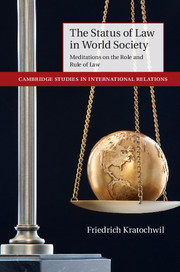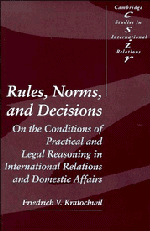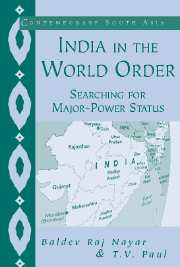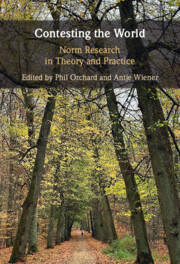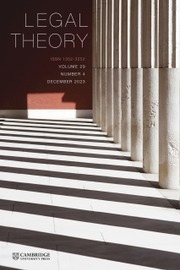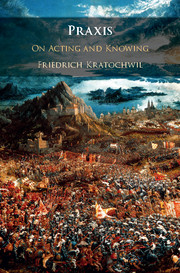The Status of Law in World Society
Friedrich Kratochwil's book explores the role of law in the international arena and the key discourses surrounding it. It explains the increased importance of law for politics, from law-fare to the judicialization of politics, to human rights, and why traditional expectations of progress through law have led to disappointment. Providing an overview of the debates in legal theory, philosophy, international law and international organizations, Kratochwil reflects on the need to break down disciplinary boundaries and address important issues in both international relations and international law, including deformalization, fragmentation, the role of legal pluralism, the emergence of autonomous autopoietic systems and the appearance of non-territorial forms of empire. He argues that the pretensions of a positivist theory in social science and of positivism in law are inappropriate for understanding practical problems and formulates an approach for the analysis of praxis based on constructivism and pragmatism.
- Provides a critical survey of major debates in international law and legal and political theory on the role of law in the international arena
- Investigates the new configuration of politics and law domestically and beyond the state
- Engages the Western philosophical tradition, including the human rights discourse, to add historical depth to ongoing debates
Reviews & endorsements
"Kratochwil has written the international law book of the year. There is much here to admire, there is much to take to heart and also (he will be delighted to see) some things to disagree with."
Jan Klabbers, European Journal of International Law
Product details
No date availableAdobe eBook Reader
9781139699037
0 pages
0kg
This ISBN is for an eBook version which is distributed on our behalf by a third party.
Table of Contents
- Preface
- Introduction: images of law
- 1. Inter-disciplinarity, the epistemological ideal of incontrovertible foundations and the problem of praxis
- 2. On the concept of law
- 3. On constitutions and fragmented orders
- 4. Of experts, helpers, and enthusiasts
- 5. The power of metaphors and narratives: systems, teleology, evolution and the issue of the 'global community'
- 6. Cosmopolitanism, publicity, and the emergence of a 'global administrative law'
- 7. The politics of rights
- 8. The limits and burdens of rights
- 9. The bounds of (non)-sense.

